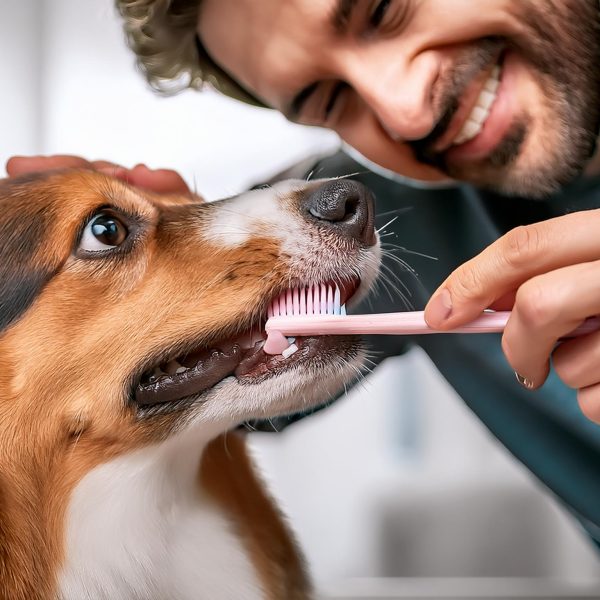Our furry companions are more than animals; they hold a place in our families, and their well-being is extremely important to us. Lately, there has been a growing interest in approaches to pet health, which involves integrating therapies alongside traditional veterinary care. Holistic pet care takes into consideration the welfare of our pets, encompassing not only their physical health but also their emotional and environmental aspects. In this guide, we will delve into the concept of pet care. Discover how you can seamlessly include natural therapies in your pet’s everyday life.
Understanding Holistic Pet Care
Holistic pet care adopts an approach that recognizes the interconnectedness of a pet’s mental and emotional well-being throughout their lifespan. Unlike medicine that often focuses on treating specific symptoms or ailments, holistic care aims to tackle the root causes of health issues while promoting overall wellness.
Key Principles of Holistic Pet Care:
- Prevention: Holistic care places importance on measures to uphold optimal health and prevent illnesses from arising in the first place.
- Balanced Nutrition: A nourishing and balanced diet lie at the heart of pet care. Choosing high-quality food is important to meet the nutritional requirements of individual pets.
- Natural Therapies: In care, various natural therapies, like acupuncture, herbal medicine, massage, and chiropractic care, are used to support well-being.
- Emotional Well-being: Holistic care recognizes that emotional health has an impact on well-being. It addresses factors such as stress, anxiety, and behavioral issues to promote a living environment.
- Environmental Considerations: When providing care for your pet, consider their living environment. This includes ensuring air quality, minimizing exposure to toxins, and allowing access to sunlight.
To Incorporate Therapies into Your Pet’s Routine:
- Focus on a Nutritious Diet:
- Consider adding fresh foods like meat, vegetables, and fruits after consulting with your veterinarian for a well-rounded diet.
- Depending on your pet’s needs, supplements like omega-3 fatty acids, probiotics, and supporting supplements can contribute to their health.
- Explore the Use of Remedies and Herbs:
- Herbal medicine offers benefits for ailments; herbs such as chamomile, calendula, and echinacea are known for their healing properties.
- Herbal supplements have the potential to support health concerns. It’s important to consult with a holistic veterinarian for expert advice.
- Acupuncture:
- Balancing Energy: Acupuncture involves the insertion of needles into points on the body to stimulate the flow of energy. It can provide benefits for pain management, arthritis, and various health conditions.
- Chiropractic Care:
- Spinal Alignment: Chiropractic care focuses on maintaining alignment of the spine, which promotes well-being. It can be particularly beneficial for pets with issues or those recovering from injuries.
- Massage Therapy:
- Relaxation and Circulation: Massage therapy offers both emotional benefits for pets. It helps improve blood circulation, reduces muscle tension, and promotes relaxation.
- Aromatherapy:
- Calming Scents: Aromatherapy involves using oils to create a soothing environment. However, it’s important to choose oils as some can be harmful to pets. Examples of options include lavender and chamomile.
- Mind-Body Practices:
- Mental Stimulation: Engage your pet’s mind through activities such as puzzle toys, interactive games, and training exercises. Mental stimulation plays a role in maintaining health.
- Environmental Enrichment:
- Natural Sunlight: Make sure your furry friend gets plenty of sunlight as it plays a role in their overall well-being. Sunlight helps regulate their sleep-wake cycle and provides vitamin D.
- Toxin-Free Living: Create a pet-friendly environment by reducing their exposure to harmful toxins. Opt for cleaning products, avoid using chemical pesticides, and ensure they have access to clean air.
- Regular Exercise:
- Tailored Activities: Customize exercise routines based on your pet’s age, breed, and health condition. Regular physical activity is crucial for them to maintain weight and promote fitness.
- Hydrotherapy:
- Low-Impact Exercise: Hydrotherapy involves water-based exercises that can be especially beneficial for pets with problems or those recovering from surgeries. It’s important to consult with a professional to ensure safe practices.
Putting Holistic Pet Care into Action
Implementing pet care requires an effort between pet owners and holistic veterinarians. Here’s how you can apply principles:
- Consulting with a Holistic Veterinarian:
- Find a veterinarian who specializes in care so they can assess your pet’s unique needs and develop a personalized care plan.
- Transitioning to a Balanced Diet:
- Gradually transition your pet to a nutritious diet. Collaborate with your vet to determine the dietary options for your pet, taking into account factors such as their breed, age, and overall health condition.
- Incorporate Treatments:
- Consider incorporating treatments like acupuncture, chiropractic care, and massage under the guidance of a professional.
- Create an Enriching Environment:
- Make sure your pet’s environment is enriching by providing activities, safe toys, and opportunities for exposure to natural elements like sunlight.
- Monitor Emotional Well-being:
- Pay attention to your pet’s well-being by addressing any stressors they may have, creating a loving environment for them, and seeking professional help if needed for behavioral concerns.
- Regular Veterinary Check-ups:
- Even in holistic care, regular veterinary check-ups are essential. These visits help identify any issues early on and ensure that your pet receives comprehensive care.
Adopting an approach to your pet’s health considers not only their physical symptoms but also takes into account their emotional well-being and environmental factors. By integrating therapies into their routine, you can contribute to their health and happiness. Always work alongside a veterinarian to develop a care plan tailored to the specific needs of your beloved companion. Embracing this mindset will enhance the quality of your pet’s life while promoting longevity and overall rounded health.








